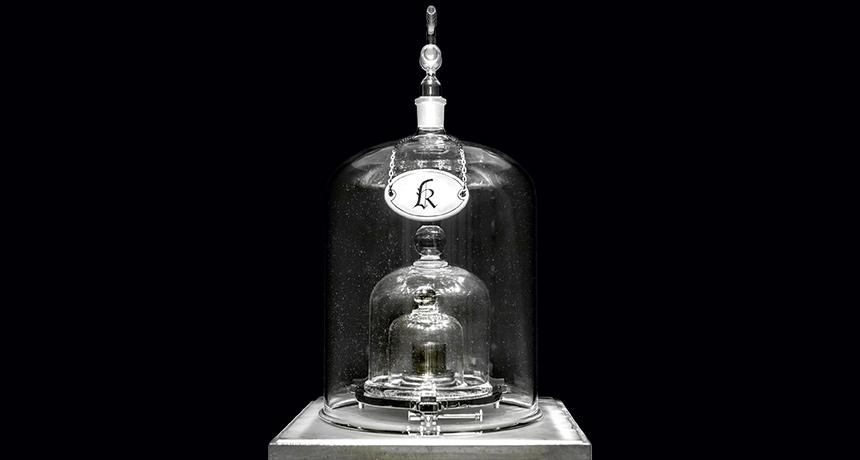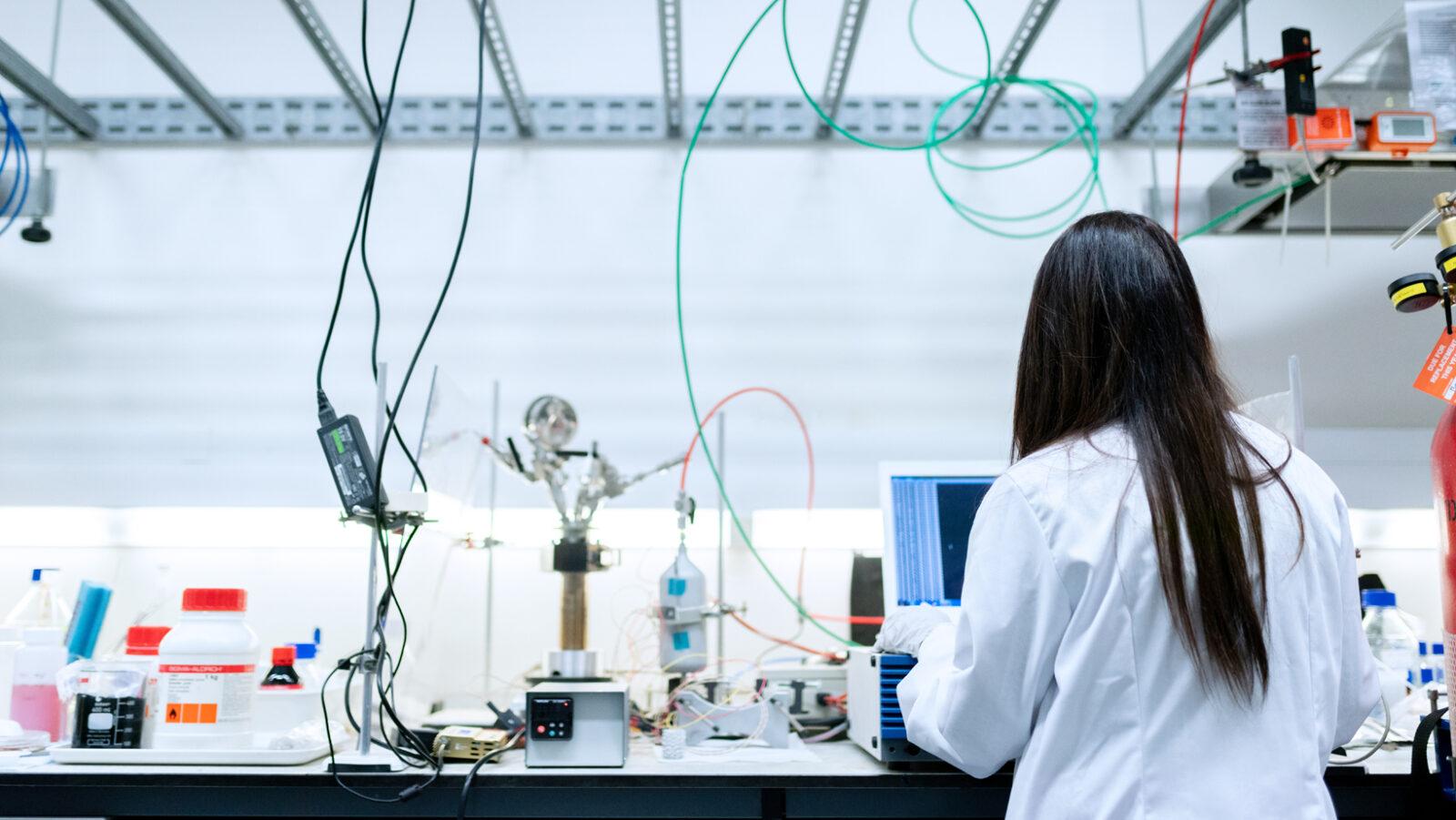•Beginning on May 20, 2019 (World Metrology Day 2019), scientists will no longer base the standard weight of the kilogram on an object called “Big K,” but on a universal concept in quantum mechanics called Planck’s constant.
•This redefinition of the kilogram won’t disrupt the everyday lives of regular citizens.
•However, it does have a significant impact on various industries–and it ensures that the definition of the kilogram will remain precise for all time.
When was the last time you thought about the kilogram? Perhaps, it was when you were shopping for your Media Noche feast. (Or perhaps, it was the moment you stepped on your bathroom scale, after losing any and all pretense of self-control during your Media Noche feast.)
In today’s world, standardized units of measurement are an absolute must. They serve as our yardsticks, ensuring that we’re all on the same page when we talk about weight, height, length, and so on. Think about it: everything from medication to navigation depends on measurements that remain consistent, regardless of circumstance or location. Without standardized measurement, civilization will likely descend into utter madness.
But what if you woke up one day and realized that the kilogram–which you expect to be the same no matter where you are because, well, it’s supposed to be that way–doesn’t weigh exactly like how it used to?
Wait, is that even possible?
Yes, it is. In fact, it has already happened.
A weighted discussion
The kilogram is part of the International System of Units (SI), also known as the metric system. It was established by France’s International Bureau of Weights and Measures (Bureau international des poids et mesures, or BIPM). BIPM’s primary objective was to create a system of measurement that was consistent and not arbitrary: a system “for all time, for all people.”
In doing so, they took inspiration from the physical world. The meter, for instance, was initially equivalent to 1/10,000,000 of the distance between the equator and the North Pole. Meanwhile, the gram was created to be the same as the mass of 1 cubic centimeter of water at 4°C.
Thus, it made sense to create tangible representations of these measurements. In the case of the meter, they forged a platinum bar of the same length. In the case of the kilogram, they created “Big K”: the International Prototype of the Kilogram (IPK). Big K is what manufacturers use to calibrate weights, which are in turn used to calibrate other weights across the world. They also made replicas of Big K, which they distributed to other countries. Every 40 years, Big K is taken out and compared to those copies to ensure that they’re still accurate.

Weighing options
Unfortunately, because Big K is a physical object, all sorts of external factors can alter it, even just the slightest bit: A scratch here, a speck of dust there, and so on. In fact, it has now reached the point where it is off by 50 micrograms. Doesn’t sound like a big deal, right?
Here’s the problem: Because of the way we define the kilogram, when Big K changes, the rest of the world adjusts.
Admittedly, it may not sound like a major problem at first. However, it becomes a tremendous headache when it comes to things that rely on precise measurements in order to function properly.
In medicine, for example, the slightest weight inconsistency could mean the difference between a life saved and an overdose. In nautical navigation, it can determine whether your ship sails smoothly or goes the way of the Titanic.
Understanding that this isn’t a situation to be taken, well, lightly, scientists gathered at the General Conference on Weights and Measures in Versailles, France on November 16, 2018. There, they decided that it was time for the kilogram to stop depending on a man-made object. Starting on May 20, 2019, the kilogram will be tied to the Planck constant, a fixed concept in quantum mechanics.
The beautiful thing about this is that the Planck constant will never change. It’s mathematical, it’s precise, and it will remain the same from one end of the cosmos to another.
But weight — there’s more
You’re probably thinking, “Sure, the science is lovely. But will this affect me on a personal level? Should I even care?” The answers are “not really” and “absolutely,” in that order.
“I don’t think the re-definition will affect Filipinos in a major way; the difference will not be apparent,” said Dr. Mary Jacquiline Romero, a physicist from the School of Mathematics and Physics at the University of Queensland. “We can weigh things just as usual, without having to worry we are getting less or more in the weight readings.”
Another physicist, Dr. Eliezer Estrecho, also weighed in (pun intended). He said that since we don’t have a copy of Big K, the redefinition’s impact may not be readily apparent. However, it doesn’t mean that we should take this news for granted; if anything, we should appreciate it.
“It’s good news that even though the definition of something that we use everyday has changed, our daily life remains unchanged,” according to Dr. Estrecho. “The redefinition of the kilogram is a global effort; even if the Philippines is not directly involved, this new definition of the kilogram, together with the rest of the SI units, will likely last forever.”
Weight and see
“The calibration procedures used by Filipinos [for weighing scales] would still be the same,” explained Kiveen P. Suycano, Section Head of the Mass Standards Section of the Department of Science and Technology – Industrial Technology Development Institute (DOST-ITDI).
Suycano added that the legal applications of the weights involved in everyday transactions will remain the same. If you were to compare one scale calibrated via Big K and another based on Planck’s constant, there shouldn’t really be any significant difference. “The only thing that will change is the uncertainty of measurement.”
In other words, the impact on consumers’ lives will be negligible. However, Suycano said that the redefinition will certainly impact the scientific community. It will definitely affect fields that routinely deal with objects at the molecular level.
As Dr. Estrecho noted: “When the second was redefined in terms of the speed of light, it made the GPS accurate. Now, millions of Filipinos use the technology via their smartphones. Maybe the precision brought by this new definition can enable new technologies that will be useful in our daily lives.”
“I think Filipinos should care because the new definition is beautiful: based on a universal physical constant, rather than a physical object,” shared Dr. Romero, who emphasized how Big K’s tendency to gather dust or deteriote puts its consistency into question. “It also shows us how these things are defined–there’s a lot of work that goes on behind the scenes!”
At least in the years to come, you can be more confident that your suking tindera‘s scales aren’t rigged to cheat you. Or that when your weighing scale tells you that you gained weight, you really did, no matter where you are in the universe.
Cover photo: Pexels (Markus Spiske, Isaque Pereira, Anne Kruse)
References
- https://www.scientificamerican.com/article/redefining-the-kilogram/
- https://www.smithsonianmag.com/science-nature/redefine-kilogram-180970798/
- https://www.vox.com/science-and-health/2018/11/14/18072368/kilogram-kibble-redefine-weight-science
Author: Mikael Angelo Francisco
Bitten by the science writing bug, Mikael has years of writing and editorial experience under his belt. As the editor-in-chief of FlipScience, Mikael has sworn to help make science more fun and interesting for geeky readers and casual audiences alike.







